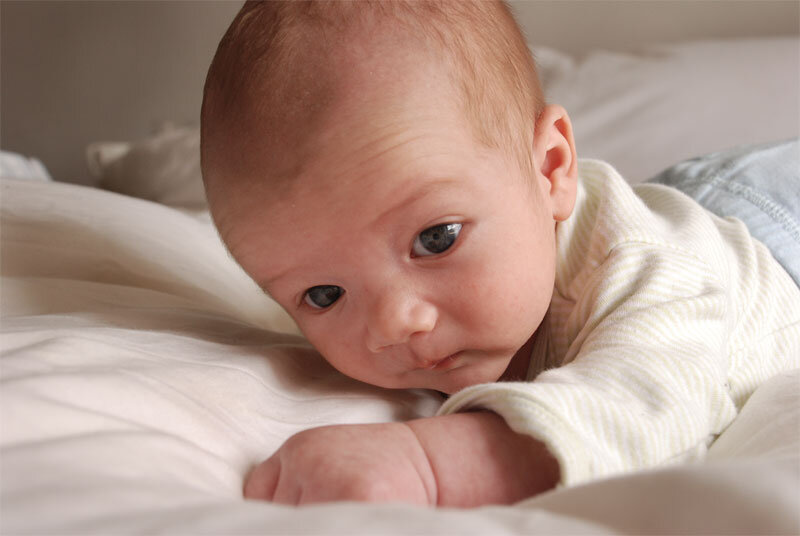It seems that more of us are being diagnosed with Post Natal Depression these days, which begs the question: does motherhood make women miserable or are we turning a normal, if difficult, psychological transition into an illness?
In working as a post natal doula, I am in women’s homes after they have had a baby and it is perfectly normal for me to see new mothers sad or miserable or even crying. It turns out this is one of the questions in the Edinburgh Post Natal Depression Scale, a self reporting tool developed in 1987 to help identify women with post-natal depression; something your health visitor may have asked you to complete. Another question is “have you felt scared or panicky for no good reason?” which equally most of the women I work with in the early days of motherhood (if they were honest) would say yes to.
 Motherhood can be very very hard to adjust to for most of us, and in the struggle to get a handle on it (and possibly to realize that you will never truly get a handle on it) it is only normal to expect to be teary or feel fear. Immediately postpartum a new mother is probably physically exhausted, sleep deprived, hormonally frankly quite mad and deeply in love with a tiny new person they feel biologically programmed to protect and care for. She may also find herself at home alone with her baby if her partner has to go back to work and her family is not near.
Motherhood can be very very hard to adjust to for most of us, and in the struggle to get a handle on it (and possibly to realize that you will never truly get a handle on it) it is only normal to expect to be teary or feel fear. Immediately postpartum a new mother is probably physically exhausted, sleep deprived, hormonally frankly quite mad and deeply in love with a tiny new person they feel biologically programmed to protect and care for. She may also find herself at home alone with her baby if her partner has to go back to work and her family is not near.
Couple this with the fact that motherhood is without a doubt the hardest-easiest job in the world and you may very well find a woman who weeps and feels scared. Intellectually, we know that a baby’s needs are so simple: food, warmth and love. And yet… and yet… it can seem like a relentless cycle of food, warmth and love and regardless of the food, warmth and love it also seems that they cry. A lot. And every cry goes through you in a way that you would never have believed before it happens to you, and every fibre of your body reacts to that cry. Sometimes a baby’s cry is hunger, sometimes it is discomfort and sometimes it just is.
I have a client who recently told me that the minute she realized that her son just needed to be held, she was a much better mother. She had spent the first six weeks of his life feeding him and changing him and winding him and then believing that she should put him down, in a basket or a crib or in a bouncing chair and he would be satisfied. He wasn’t and so he cried. When she realized that by carrying him, he was happier, she was much better able to be a good enough mother. But it took her six weeks to figure out what she imagined she would know instinctively. The solution she found for her baby worked for her and for her son was not something she read in a book or someone else told her to do, or even something that will work for you (although it might be worth trying!) but eventually through trial and error, she came to the conclusion that her baby would only stop crying if she carried him with her. Pregnant with her second child, she is now preparing for her next baby to be the same. Perhaps he will be, or maybe she will have to do all that learning again with a different child, either way she understands the fundamentals of being a good enough mother. You try your best to find the best solution to any given situation and forgive yourself if you don’t manage it quickly. Every mother should march to the beat of the tiny drum her baby beats for her.
There are no simple answers to motherhood, it is not an exact science. The best you can realistically hope is be a good enough mother. To figure out what your baby needs and provide it as swiftly as possible and understand that sometimes babies just cry. You may find that carrying them helps, or singing to them, or walking around the park in their pram, or sometimes it could be that nothing helps and your baby is just exercising his right to shout. A lot. A friend says her son frequently sounds like he is being attacked by cats. A second time mother, she spent his first week rushing to save him from the imaginary marauding felines and then slowly realized that is just how he is. It is normal for him to cry like that - it doesn’t mean anything is wrong particularly, it is just the way he is, different from his sister before him
It is also important to remember that babies are very receptive and so, if you feel anxious or panicked or scared, they will pick up on that. If in the face of motherhood you feel fear (and really, I don’t know anyone who is honest who can say it doesn’t ever fill her with some sort of fear) your baby will react in a way which may make you feel even more fear and so a vicious cycle begins. I have a client at the moment who said to me “Why is my baby always so calm when you are here?” and it isn’t because I am a magic baby whisperer (more’s the pity), it is because my being in her home means she can focus only on her baby and not worry about the washing or the cooking or the ironing or the shopping or answering the door to the post man or cleaning out the fridge or putting the flowers in water or any of those other things that distract us from our babies and so SHE can make her baby more calm by being more calm herself.
I am not sure that women are more inclined to post natal depression these days myself. I do think the adjustment we make as we transition from individual to mother is a very difficult one, emotionally and physically, possibly harder to do when older but if that manifests itself in tears or random moments of panic, then we should embrace them and ask for help. Being alone and sad and panicked is far more overwhelming than sharing it with someone who cares for you and so much the better if that person can normalize those feelings for you. It is right you should feel sad sometimes as a mother and being responsible for a tiny new person is also pretty scary, but grab that fear with both hands harness it and be the best mother you can be. It is also right that you should feel overwhelming joy and discover meaning in your life that you had no idea existed. And enjoy being a mother. For most of us it’s the best job you will ever have.
